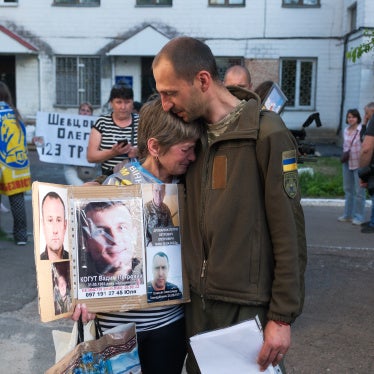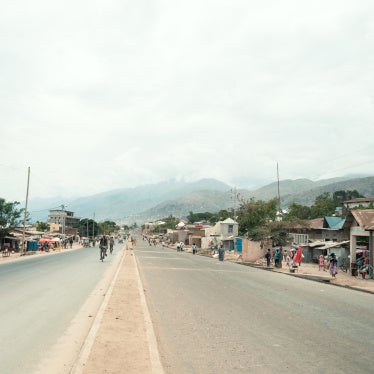Negative reactions to rulings from the Hague are par for the course in the Balkans. But the strong response in Croatia to the Gotovina ruling suggests a country struggling to come to terms with its past.
On April 15, the International Criminal Tribunal for the former Yugoslavia (ICTY) convicted two generals, Ante Gotovina and Mladen Markac, for war crimes and crimes against humanity committed during "Operation Storm," sentencing them to long jail terms. A third defendant, Ivan Cermac, was acquitted. About 300 Croatian Serb civilians died during the 1995 military offensive that defeated rebel Serbs, and several hundred thousand more fled Croatia.
The ruling has provoked fury in Croatia, with tens of thousands of war veterans and others taking to the streets in protests across the country, with more protests expected during the ICTY prosecutor's visit to Zagreb on 4 May. Prime Minister Jadranka Kosor called the verdicts "unacceptable" and promised that the government will do everything it can to overturn them on appeal. Even President Ivo Josipovic expressed his shock and rejected the court's findings.
The reaction from the government was sadly predictable. Successive Croatian authorities have stalled on cooperation with the ICTY. Had it not been for EU pressure linked to accession, Gotovina would almost certainly never have been arrested. The current government was criticized by the ICTY prosecutor for failing to hand over documents related to the case. The government's unpopularity, evidenced by a growing tide of popular protests, also helps explain its response.
But what of Josipovic, who remains fairly popular, and is often seen as moderate and a bridge-builder with other countries in the region? As with many Croatians, his concern seems to stem from the finding that part of the military operations undertaken by the generals amounted to a "joint criminal enterprise."
As the ICTY's chief prosecutor has made clear, the court did not rule that the war or Operation Storm as a whole were "joint criminal enterprises" or that the Croatian state was founded on an illegitimate basis. Rather the judges ruled that some aspects of the military offensive violated international law, including the killing of Croatian Serb civilians and displacement of others, and that the generals had knowingly carried out that course of action.
As to the view that the ICTY is biased against Croatia, the facts speak for themselves. Of the 36 trials at the ICTY that have led to verdicts, this is the only one brought against members of the Croatian Army for crimes committed during the war in Croatia. The majority involve Serb defendants from the Yugoslav or Bosnian Serb armies and police or paramilitary forces.
Progress on domestic war crimes prosecutions in Croatia has been mixed at best. As Human Rights Watch and other organizations have reported, few members of the Croatian Army have been prosecuted for war crimes, although the number has grown in recent years, in large part due to prodding from Brussels. Domestic war crimes trials against Serbs, however, have been plentiful. Although it is certainly possible that Serbs are responsible for more war crimes in Croatia than members of the Croatian Army, this does not explain why many crimes committed by Croatian Army forces have gone unprosecuted.
It also does not explain why many Serbs have been tried for war crimes in absentia, without being present to defend themselves. Of the 14 Serbs convicted of war crimes in 2010, 6 were not present at their trials. The trend is increasing, despite the chief state attorney's commitment to review and revise at least 366 in absentia convictions. And Serbs are often given higher sentences than Croats for similar offenses, because courts are allowed to use their service in the Croatian Army as a mitigating factor at sentencing.
More than 60,000 of the Croatian Serb refugees who fled the war have not returned to Croatia, and returns have slowed to only a few hundred individuals every year. The government has made some belated progress on restoring occupied homes and agricultural land, providing reconstruction assistance, and very recently on compensating for lost tenancy rights. But obstacles relating to pensions and housing continue to deter the estimated 10,000-15,000 people who might still return with the necessary support.
Croatia likes to present itself as more advanced than many of its neighbors, and it can point to its progress toward EU membership as evidence. But when it comes to dealing with the past, the country's reflexes remain much like those of other former Yugoslav republics. A greater willingness to prosecute war crimes fairly irrespective of ethnicity, to accept the ICTY's judgment and to make things right with Serbs who were forced to flee would help show Croatia is truly ready to move on from its past.
Amanda McRae is the Western Balkans researcher for Human Rights Watch.






